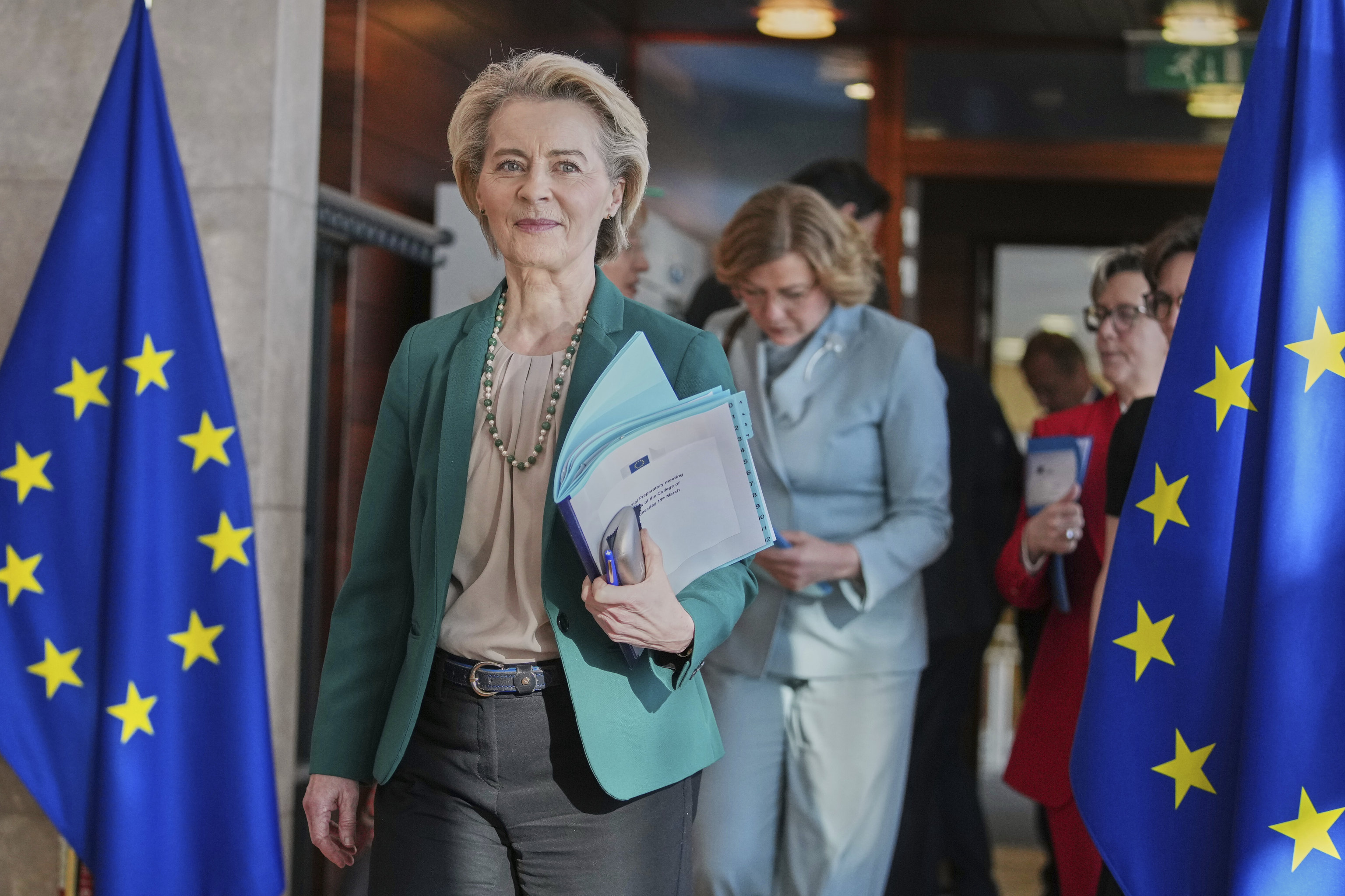Vladimir Putin is already directly threatening NATO countries. The European Union warned about it yesterday, indicating that the intelligence services of Denmark and Germany have conveyed this information based on Russia's movements, and therefore Europe must be prepared for "the worst possible scenario."
"Since the beginning of this mandate, President Von der Leyen made Defense a clear priority for this Commission. Just yesterday [on Tuesday], she reiterated in Copenhagen the essence of what we all must do: 'If Europe wants to avoid war, Europe must prepare for war.' The intelligence services of Germany and Denmark have announced that the Kremlin is preparing to test NATO's Article 5 before 2030," Defense Commissioner Andrius Kubilius stated very clearly during the presentation of the Defense white paper. At a crucial moment, in the heart of the EU and fully aware not only of the high number of eyes focused on him but also of their importance.
And what that Article 5 of the North Atlantic Treaty Organization states is that "the Parties agree that an armed attack against one or more of them, in Europe or North America, shall be considered an attack against them all." That is what Putin wants to test, that unity, and for that, he would be willing to directly attack or threaten a country that is part of NATO. It is frightening just to read it and of course to hear it from a European commissioner.
But there is more. "If Russia is allowed to achieve its objectives in Ukraine, its territorial ambition will extend further. Russia will remain a fundamental threat to Europe's security in the foreseeable future, including its more aggressive nuclear posture and the positioning of nuclear weapons in Belarus. Russia is exploiting a network of systemic instability, even through close cooperation with other authoritarian powers. It is persistently fueling tensions and instability in Europe's neighborhood," adds the Commission in the aforementioned white paper.
Therefore, both Kubilius and the EU's foreign policy chief, Kaja Kallas, emphasized on numerous occasions this Wednesday the need for a "massive" and sustained effort over time. All members of the Commission repeat it whenever they have the opportunity, and in Brussels, there are already clear indications of targets for investment of 3% to 3.5% of GDP. This will be the central topic at the NATO summit to be held in The Hague in June, and to facilitate this objective, the EU wants to kickstart military rearmament with a package of up to 800 billion euros.
The majority of that amount, 650 billion euros, corresponds to the fiscal space that Brussels offers to countries through escape clauses, which the Commission wants countries to activate soon. "Before the end of April," as stated in the white paper. The other 150 billion euros are reached through the European loan instrument, funds that were revealed yesterday to have to be allocated at least 65% to Made in Europe products and also aim to benefit EFTA states (European Free Trade Association) and Ukraine.
All of this will be discussed again on Thursday at the presidents' meeting in Brussels. And most likely, the possibility of requesting Eurobonds as non-repayable funds will also be discussed. A tool similar to the grants included in the Recovery Plan, with Spain being one of the main supporters. The government of Pedro Sánchez has already managed to have the expansion of the Defense definition studied and include aspects such as border protection.
This would mask Spain's relative figures, which also plans to approve military increases through credits. This would bypass Congress, where the government has a hard time getting the necessary support to increase Defense spending, and is also considering reallocating funds from one ministry to another. But all of this seems insufficient because it is neither massive nor sustained over time. These are patches that are completely inadequate against Russia's military power and the attack that the EU fears before 2030. Five years ago, the pandemic broke out, and in less time than that, a war could break out.
